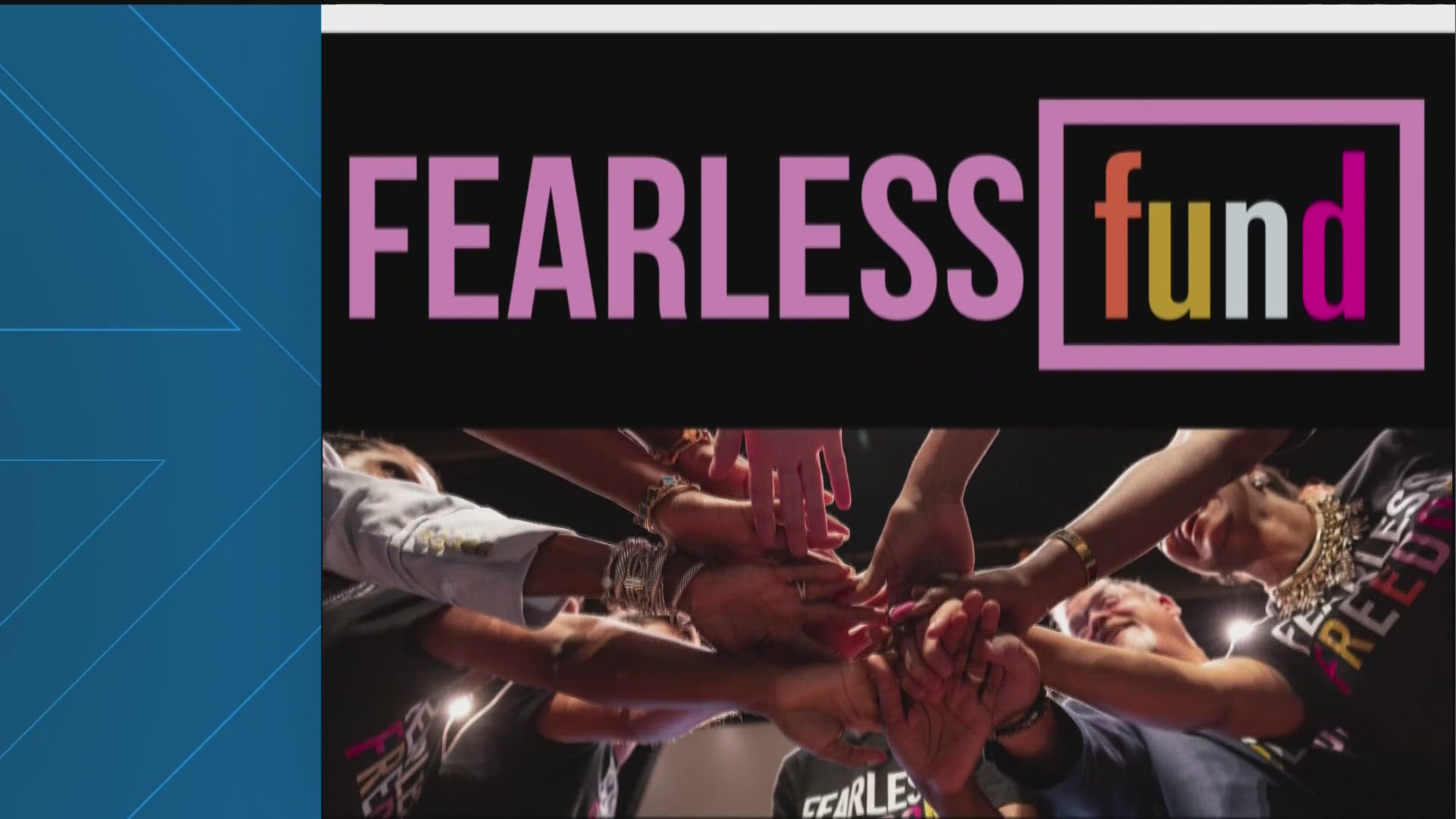ATLANTA — A settlement was reached in the lawsuit against an Atlanta Black women-led grant program.
The agreement includes shuttering the grant program entirely. It comes after a U.S. Appeals Court suspended the venture capital, Fearless Fund's grant program.
Edward Blum, who leads the American Alliance of Equal Rights (AAER), said that Fearless Fund will not reopen the program. The ruling came as a blow to the firm, which called the decision "devastating."
As diversity, equity and inclusion programs are coming under attack at educational institutions, the efforts also continue to ravage corporations as conservative groups continue to sue the programs in court.
The AAER filed the lawsuit in the U.S. District Court for the Northern District of Georgia last year, claiming the program providing grants to Black women to grow their businesses violates federal civil rights law.
According to reports from the Associated Press, Blum is a conservative activist who was behind a case that ended affirmative action in college admissions. The Supreme Court deemed that race-conscious admissions violated the Constitution.
Blum said in a statement on Wednesday, "The American Alliance for Equal Rights encouraged the Fearless Fund to open its grant contest to Hispanic, Asian, Native American and white women, but Fearless has decided instead to end it entirely."
"Race-exclusive programs like the one the Fearless Fund promoted are divisive and illegal," he added. "Opening grant programs to all applicants, regardless of their race, is enshrined in our nation's civil rights laws and supported by significant majorities of all Americans."
Arian Simone, the CEO of the venture capital firm, has previously stated and stood on her mission to continue defending opportunities for women of color in the entrepreneurial space.
In a statement on Wednesday, Simone said, "The Fearless Fund and Fearless Foundation will continue to be a vital resource to ensure everyone has a fair shot at the American Dream.”
The grant program specifically wanted to give an opportunity to only women of color in small businesses who might have trouble starting or getting funding for their businesses.
According to the National Bureau of Economic Research, the failure rate among Black people who start new businesses is a 22% rate lower than their white counterparts.
The National Organization for Women stated in response to the grant program suspension that Black women are also more likely to be rejected for venture capital funding for a startup business.
Lastly, a Forbes report added that Black women do not even receive a full percentage point of venture capital funding.
The National Venture Capital Association, an trade group with hundreds of member VC firms, filed an amicus brief defending the Fearless Fund’s grant program as “modest but important” step toward creating equal opportunity in an industry that has historically excluded Black women.
Read the full statement from Simone, the CEO of the venture capital firm below about the settlement:
From the moment the lawsuit was filed, I pledged to stand firm in helping and empowering women of color entrepreneurs in need. I stand by that pledge today and in fact my commitment remains stronger than ever. Our overarching mission remains focused on helping and empowering entrepreneurs who have been historically overlooked in the venture capital marketplace. The Fearless Fund and Fearless Foundation will continue to be a vital resource to ensure everyone has a fair shot at the American Dream.
Although the rejection from the Supreme Court was a let down, the Fearless Fund announced on Wednesday plans to lend loans to under-resourced founders who have been in business for more than one year, have a credit score of at least 600, and demonstrate $50,000 in annual revenue.
The Associated Press contributed to this report.

